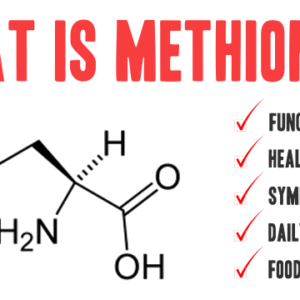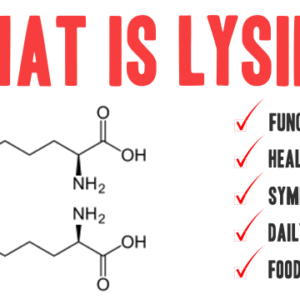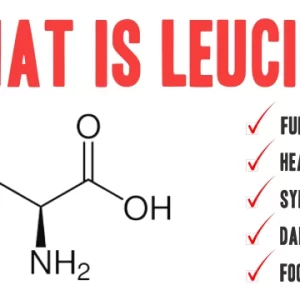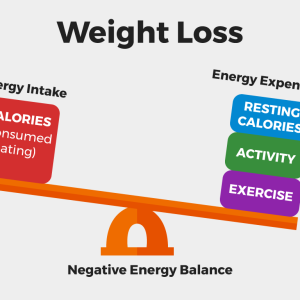Vitamins
Vitamins are organic compounds that are vital for human health. Vitamin deficiency can cause many important health problems. For this reason, it is very important for people with vitamin deficiencies to take appropriate vitamin and nutritional supplements. It is recommended to take vitamins especially naturally. However, with the advice of a physician, vitamin supplementation in the form of medicine is recommended for those who suffer from severe vitamin deficiency or are in the process of disease. Consuming vitamins without the advice of a physician can cause health problems. Unnecessary vitamin consumption can be harmful to the kidneys and livers, as it accumulates in the body and causes toxic effects. However, it is important for the health of the elderly, those who are in the process of illness, pregnant women and children to take the necessary vitamin supplements.
When are vitamin and nutritional supplements needed?
There is no need for vitamin and nutritional support in a healthy diet (adequate and balanced). However, those who eat low energy, do not eat adequate and balanced nutrition, vegetarians (vegans who do not consume animal food), those with iron deficiency and anemia, pregnant and lactating women (iron, folate, vitamin B12), the elderly, those who use drugs for a long time (antacids, antibiotics, laxatives, diuretics), those with allergic diseases that prevent food intake, those receiving nutritional therapy for a disease, patients receiving dialysis treatment. People in this situation, with the advice of their doctors, as a vitamin and nutritional supplement; They can take up minerals, fiber, amino acids and phytochemicals. Most of these nutrients, which are offered as supplements, can be obtained naturally from daily foods for healthy people with a balanced diet.
Vitamin and Mineral Deficiencies
Vitamin and mineral deficiencies (micronutrient malnutrition) can be encountered in all age groups. However, young children and women of childbearing age carry a higher risk of vitamin and mineral deficiencies.
- Inadequate consumption of foods rich in vitamins and minerals
- Nutrient losses during the preparation, cooking and storage of foods
- The presence in the diet of factors that prevent the use of vitamins in the body
- Absorption disorders and the presence of diseases that cause absorption disorders
- Infections
- Presence of parasites
- Use of drugs, alcohol, or cigarettes
- Birth control pills (oral contraceptives)
Use of Nutritional Supplements in Athletes
Athletes; They use different substances with the thought that they will increase their performance. In addition to training efficiency, the use of non-doping nutrients to support sports performance is common practice among athletes. These are called nutritional ergogenic aids. Such nutritional supplements can be classified into 3 groups;
1. Nutritional supplements that increase energy production (carbohydrate, protein, creatine, vitamins/minerals or herbal products).
2. Nutritional supplements that change body composition (protein)
3. Nutritional supplements that accelerate recovery (carbohydrates, vitamins/minerals or herbal products)
Studies show that the majority of athletes use vitamins/minerals. Instead of using vitamins separately, it is preferred to use them as a multivitamin. Since excessive exercise increases free radicals, antioxidant vitamins (A, C, E) and B group vitamins, which have a role in energy metabolism, are normally recommended to be used slightly more than the daily recommended amount in order to meet the increased need.
Although vitamins and minerals have beneficial effects such as increasing endurance in athletes, it has not been found that taking them above the requirement increases performance. However, excessive intake of vitamins A and D can have toxic effects. A diet planned to meet the sports branch and physiological needs of the athlete meets the need for energy and nutrients, and the needed vitamins and minerals.
Use of Vitamin-Mineral Nutrients in the Prevention of Chronic Diseases
Vitamins and minerals are micronutrients in organic structure that do not provide energy directly, but contribute to the vital reactions of the organism that produce energy, and are therefore essential for the maintenance of metabolic functions, growth and general health. In addition, some of them (vitamins A, E, C) protect tissues and organs against oxidative stress due to their antioxidant properties. Therefore, they have protective roles in the prevention and treatment phase of many degenerative diseases.
Chronic diseases are responsible for the majority of causes of death in the world (approximately 35 million). Cardiovascular diseases and cancers are the leading chronic diseases seen in developed and developing countries. Apart from these, obesity and related type 2 diabetes, kidney diseases and osteoarthritis are also important public health problems. The majority of chronic diseases have similar risk factors and triggers and are largely preventable with dietary modification.
Use of Nutritional Supplements in Colds
The most discussed is the effect of vitamin C on the common cold. Most of the studies conducted with the supplementation of high doses of vitamin C on this subject state that it does not have a role in preventing colds, but that it has a slight positive effect in reducing cold symptoms. However, positive effects on the prevention of respiratory tract infections and diseases such as otitis media have been reported. Our country is rich in foods containing vitamin C. Therefore, we should try to meet our vitamin C requirement from food.
The biological effects of nutrients are closely related to their bioavailability. The main factors affecting bioavailability are; The chemical structure of micronutrients, other chemical compounds competing for absorption in the intestinal lumen, other elements in the structure of the food (eg phytates…), binding of other nutrients, intestinal transit time and enzyme activity. Nutrients can also affect each other, this effect may be synergistic, antagonistic or at threshold level.
Obtaining micronutrients from food and taking them as supplements may not have the same effects. Because in vitamin and mineral nutritional supplements, vitamin and mineral sources can be natural or synthetic. Therefore, it is important how effective vitamins and minerals are when used as a supplement, which play a role in the prevention of many diseases when taken naturally (with food). The bioavailability of the vitamins and minerals taken with the supplement may not be as high as the nutritional elements taken from the foods, depending on the active ingredient used.
Although studies to determine the effectiveness of some vitamin supplements in the prevention of chronic diseases have been shown to be effective in reducing the risk of developing diseases or reducing the death rate from some diseases, there are still question marks about their recommendation. Because there are many individual and environmental factors that affect the determination of these effects more clearly. Using supplements by focusing on a single health problem can sometimes cause new problems due to side effects.
Adequate and Balanced Nutrition in the Protection of Health
The ADA-American Dietetic Association’s (ADA) status report on the use of vitamin and mineral nutritional supplements states that the best way to maintain optimal health and reduce the risk of chronic diseases is to obtain adequate nutrients through food variety.
Especially with a diet that is rich in four basic food groups, it is possible to get macro and micro nutrients at an optimal level without using nutritional supplements. Considering the percentages of meeting the recommended amounts for vitamins and minerals, a balanced diet meets the daily vitamin and mineral requirements in sufficient amounts for both children and adult women.
Excessive intake of vitamins and minerals causes various health risks. For example; It is known that fat-soluble vitamins (such as vitamins A and D) are stored in the body when taken in excess and show various toxic effects. In cases where water-soluble vitamins are taken in excess, it should be known that some vitamins-minerals, nutrients and some drugs that are being used interact negatively with each other.
Nutritional Supplements and Drug Interactions
Consuming fortified foods or nutritional supplements may cause adverse effects for people with certain health problems. Medications that are being used at the same time can also interact with these products. This interaction can be in the form of increasing or decreasing the effect of a drug or unexpected side effects. In addition, some drugs increase the need for vitamins or minerals, while some can reduce the effectiveness of vitamins and minerals.
For example;
- The use of oral contraceptives increases the need for vitamins and minerals such as vitamins B6, B12, zinc and folic acid.
- The interaction between vitamin E and warfarin or aspirin increases the risk of bleeding due to its antithrombotic effect. Taking vitamin K in those who use anticoagulants such as warfarin causes coagulation with the opposite effect. In addition, vitamin K is abundant in most animal and plant foods.
- The use of corticosteroids increases the need for vitamin D and calcium.
- The absorption and bioavailability of folic acid decreases in the use of drugs such as pancretin and colestipol.
- The use of colestipol or orlistat reduces the effectiveness of vitamin E.
- The combined use of iron and zinc, iron and calcium reduces the absorption of each other.
- The use of penicillins with zinc reduces zinc absorption.
- In addition, it is stated that some drugs used in the treatment of hypertension may cause potassium storage, while diuretics increase the potassium requirement.
Other Supplement Types Except Vitamin Mineral Nutrition Supplements
Omega-3 fatty acids are essential fatty acids that cannot be synthesized in the body. For these reasons, they must be taken with food. Omega 3 fatty acids of animal origin are eicosapentaenoic acid (EPA) and docosahexaenoic acid (DHA), while the one of vegetable origin is alpha linoleic acid (ALA). Food sources rich in omega 3 fatty acids; fish (mackerel, salmon, herring and sardines), walnuts, dark green leafy vegetables (flaxseed, purslane, broccoli…). For this reason, it is recommended to consume up to 150g of fish 2-3 times a week regularly. The type of fish is important in terms of omega 3 fatty acids content.
Especially EPA and DHAs are effective in preventing cardiovascular diseases due to their anticoagulant, regulating blood fat and vascular protective effects. It strengthens cell membranes. It is necessary for the development and health of the retina and brain. It has anti-inflammatory effects. When enough fish is consumed, there is no need to use omega 3 supplements. It can be dangerous due to excessive consumption or different drug and food interactions. In particular, it should not be taken as fish oil. Since fish oil also contains vitamin A, it can cause excessive intake of vitamin A.

















